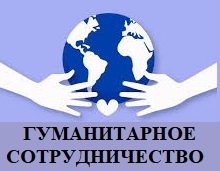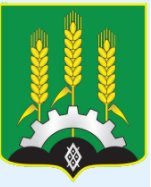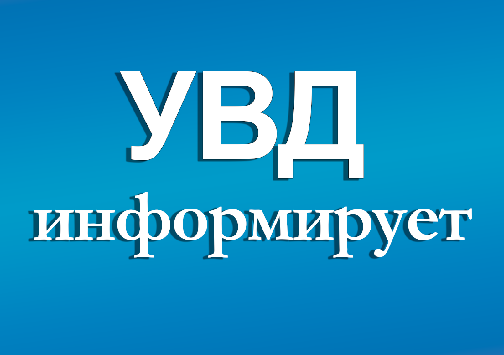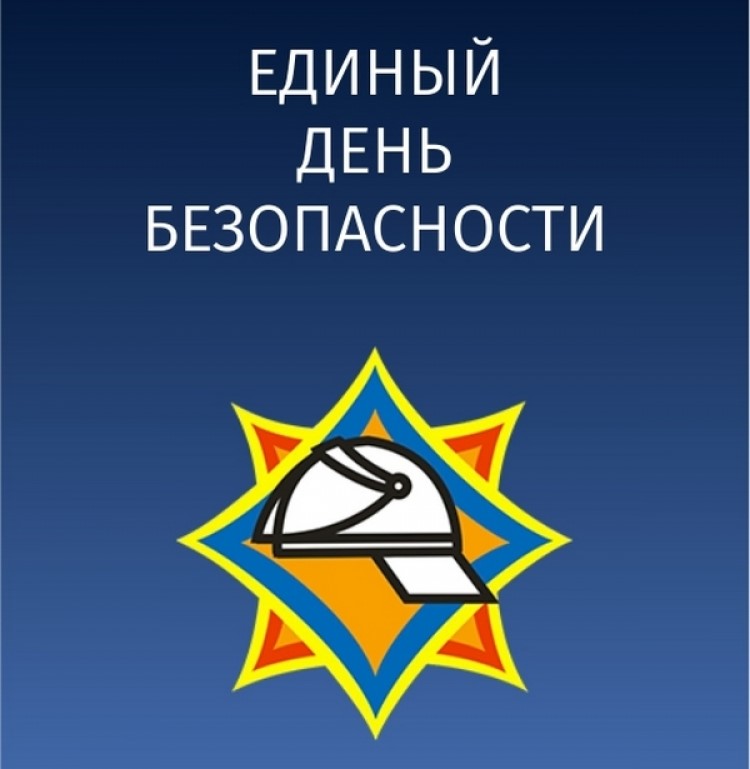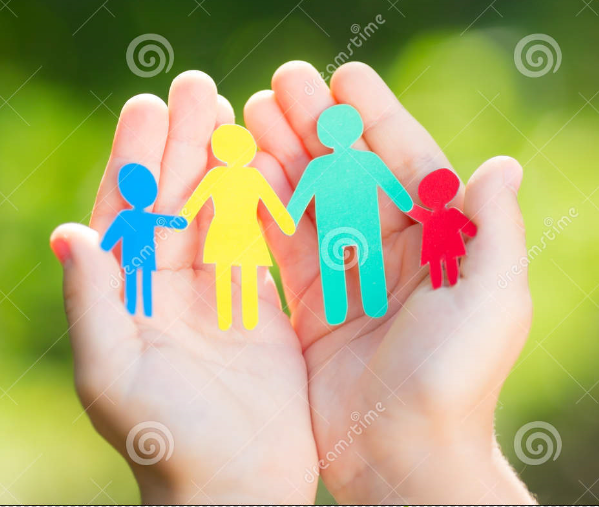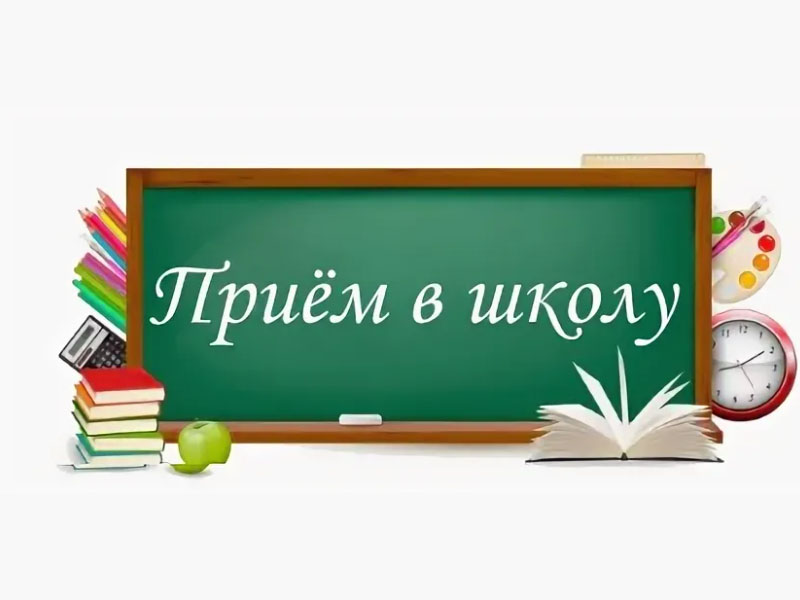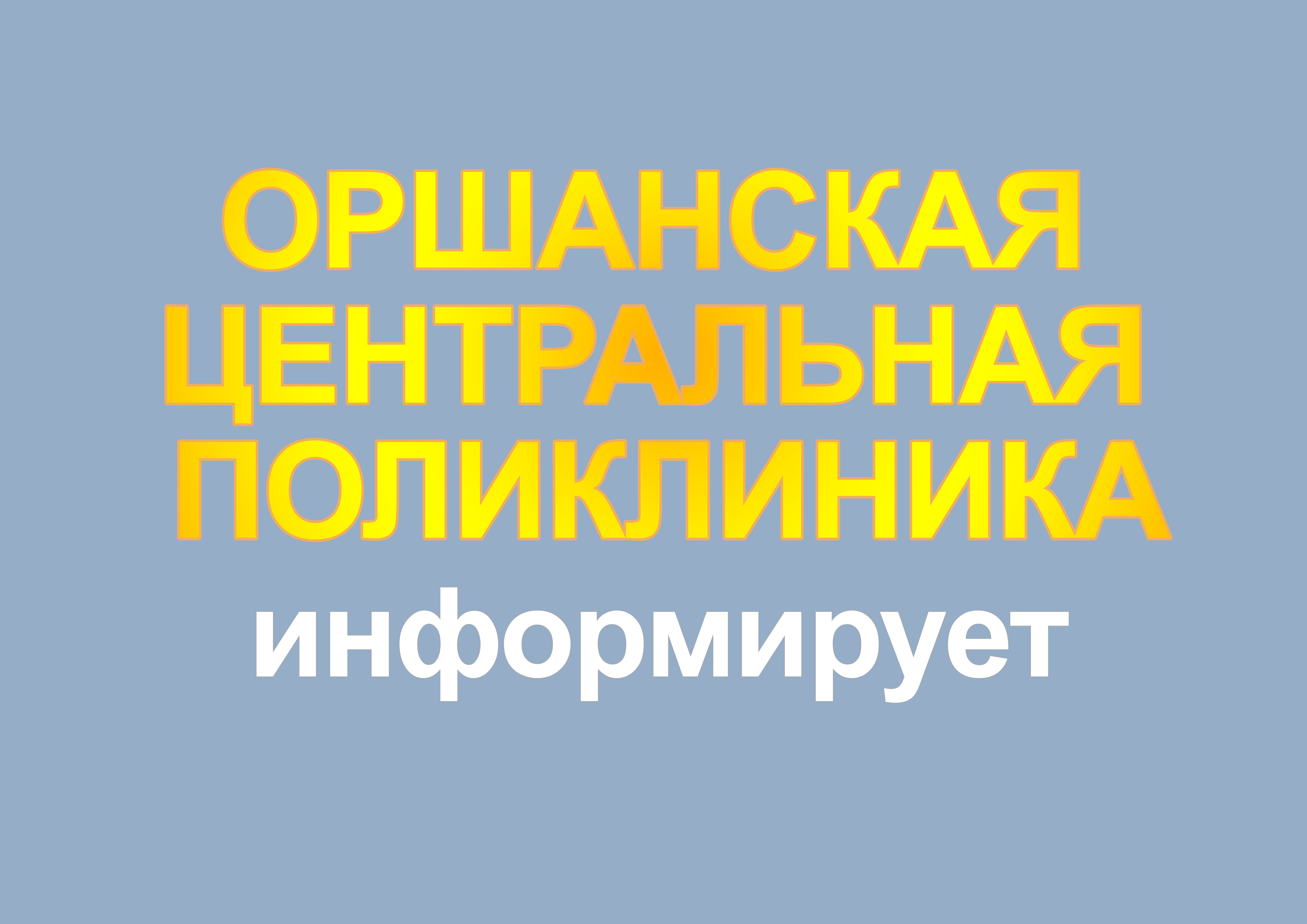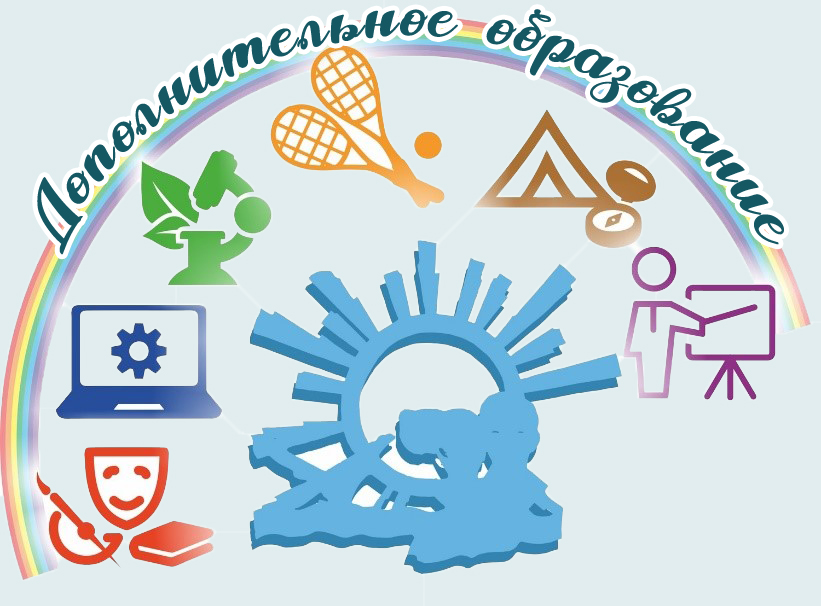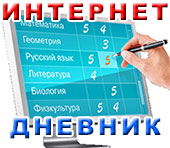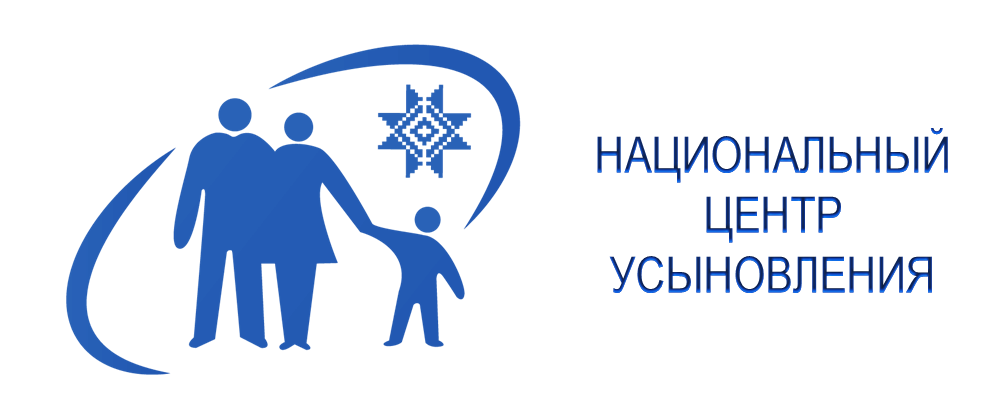About Myself
I have quite a positive outlook on life and I like people who are easy to deal with and who easily win the hearts of all those they meet, who never let their friends down, who are very pleasant companions. You see, there are people who are totally lacking in confidence and spend a lot of time on their own, which is depressing. They feel uneasy in company and are poor mixers. I’m sorry for such people and do my best to help them for I know how to make small talks and build up relationships.
I couldn’t deal with a person who pokes his nose in other people’s affairs or intrudes his views on others, or has no moral principles. I appreciate such traits of character as honesty, dignity, diligence, decency. I react negatively if my acquaintance or friend doesn’t keep his word or often changes his mind (such a habit annoys me very much), but I sometimes tend to act impulsively myself, so I have to forgive, for close friends should be tolerant, forgive willingly and try to be diplomatic to avoid conflicts. As I understand it, friendship is two-way deal and, in my opinion, the way to have a friend is to be one.
As for me, I can’t fail my friend, I can’t let lie interfere in our friendship. And I need a friend whom I can rely on, whom I can take into my confidence and who could never let the cat out of the bag.
As for my hobbies and favourite pastime I’m passionate about the things that matter to my. My interests span across sport, books …
Family
I believe that everything has its beginning in the family. Family is very important for every person, because it gives you a sense of stability and tradition, a feeling of having support and understanding. In happy families parents are frank and honest with their children, they treat their children with respect without moralizing or bossing them all the time and children in their turn learn how to treat other people, how to form relationship among their equals. In a friendly family people are gentle, respectful and loving. They always share joys and sorrows as well as domestic chores. That is the way I think all families should be. And that is how my family of … is built.
My family consists of … .
I think I’d better start my story with my dad. His name is … . He is in his …, he looks powerful and impressive. He is … . It goes without saying that he is very busy, always concentrated on his work and having very little time for private life. I like it very much when he finds time to talk with me about school and my interests. There is a lot of likeness between me and dad both in appearance and in character.
My mother’s name is … . She is … by education. Though there were no grandparents around to help my mother when I was small, she practically never gave up working. She is very interested in her work, she is a good professional and she enjoys respect from her colleagues. Mum’s life is not easy, of course, because she has to keep the house in addition to her work. My mother is a quiet and charming person. She is very kind and she does a good job of being a mother. In fact, she means a lot to me. I know I can be a real pain sometimes and I do tend to blame her for everything that goes wrong with me. Mum understands me, and she always finds proper words to comfort me. Sometimes I feel she is too bossy. My friends seem to have more freedom and independence, but I am not angry with her. At present my grandmother, who is my mother’s mother, lives with us as well. But I must say we hardly have any serious problems with three generations under one roof. We are getting along all right and I think we are a united family. We have some family traditions. We celebrate the birthdays of each member of the family, give presents to each other on the New Year day and on some other special occasions. It’s also our family tradition to spend summer holidays together either at the seaside or in the country, which I enjoy very much.
I have many remote relations: … . All of them live in Belarus and we get together from time to time.
I enjoy the honest and open relationship in my family. I like it when parents trust their children, give them freedom, rely on them and respect them. These things in my opinion make family relations warm and pleasant. There is no “fathers-and-sons” problem in our family, though we often argue and disagree on certain issues. I can always bring my friends home and my parents are very positive about my friends although they don’t always approve of our tastes, views and clothes. That’s all I can say about my family.
Free Time (Hobby).
As a matter of fact, a hundred years ago there was no problem of what working people could do with their spare time. Their hours of work were so long they had hardly any leisure. Nowadays it’s even hard to name all the activities, entertainments and hobbies run by people in their spare time. Frankly speaking nothing can be compared with the feeling of those people who have got really interested in some kind of activity which has become something favourite and admired.
Several people have animals as hobbies. They keep dogs, cats, hamsters, rabbits, or tortoises. They train dogs to do tricks and parrots to speak. Some are crazy about plants. They try to grow cacti or rare tropical flowers in their homes. Others are mad about their cars or motorbikes. They spend their Saturdays and Sundays washing them, painting them or buying new bits and pieces to make them go even faster. Children and teenagers are great collectors. They collect stamps, dolls, coins, match-boxes, computer games, toy cars, etc.
As for me I am crazy about dancing. It is my favourite hobby. No doubt dancing is both an art and a form of recreation. As an art, a dance may tell a story, set a mood or express an emotion. As a form of recreation, dancing has long provided fun, relaxation and companionship. Today dancing remains a popular way for people to enjoy themselves and to make new friends. As a rule most people dance simply to have fun or to entertain others. For many people dancing provides one of the most personal and effective means of communication. A dancer can express such feelings as joy, anger, or helplessness without saying a word. As far as, I know among some African people girls announce their readiness for marriage by taking part in special dances. Dancing often serves to create a feeling of unity among the participants. In New Guinea for example, tribal war dances before a battle get the community together and inspire the warriors to fight bravely.
In fact there are 2 major kinds of dancing: theatrical and social. TD is performed for the entertainment of spectators. It includes ballet, modern dances, musical comedy dances and tap-dancing. Theatrical dances interpret the dance effectively for the audience and the dancer’s enjoyment is less important.
In social dancing the participants dance for their own pleasure. As you see all types of theatrical and social dancing involve movement, energy, rhythm and design. Folk dancing is a form of social dancing that has become a part of the customs and traditions of people. Well-known folk dances include the square dance, the Irish jig and the polka. Most folk dances developed among people in villages and were passed on from generation to generation in a particular region. In some folk dances women and men dance together in couples.
Friends and Friendship
We all need friends. Yet even in the highly populated areas, loneliness is still a sad feature of the lives of many. Friends play an important role in our life and although we may take the fact of friendship for granted, we often don’t clearly understand how friendships are formed. Every day we mix with hundreds of people, get on well with some of them and make friends with only a few. Some people have lots of friends, others are very reluctant to make new friends. There are people who are very easy to get on with, and there are people whose friendships never last very long.
In my opinion a real friend is a person whom you trust and respect, who is “a friend in need” and who never lets you down. There are no rules of how to make friends. Usually friendship between people grows when they have common views and judgments on things and events, have common interests and ambitions. A real friend should treat me with understanding, sympathy and compassion, exactly the way he wants to be treated by me.
In general I have a very wide circle of friends, most of whom are girls. But only two or three of them are really dear to me and I hope I am to them too. My best friend is Victoria. We have known each other since we were first-formers. But our friendship really started when we got together at my friend’s place one day and talked about different things. I felt that she was a similar soul. We’ve been close friends since then.
Here I should say that Victoria is exceptionally pretty. She is about 180 cm tall with dark hair and blue eyes. She wears her hair long, sometimes she ties it in a knot. She has a straight nose and her pleasant smile makes her really attractive.
She is an energetic girl, good at sports, especially at volleyball and swimming. She is also fond of painting and some of her pictures are really good. She lives not far from my place, so we spend a lot of time together after school and on weekends.
She never speaks badly of other people and finds more positive than negative features in every person. I admire her for that.
I can’t say she is a top pupil in her class but she is capable, intelligent and well-read. She is a good at science, while I’ve always been better at humanities. She is going to enter the physics department of the Minsk pedagogical university. I hope she will do well at the examinations and make a good student afterwards.
Of course, we quarrel from time to time and fight over small things, but we make up our quarrels in no time. We can’t stay angry with each other for more than a day.
She is a hot-tempered person and at times she tends to act a little impulsively. She easily loses self-control when things don’t go well or the way she wants them to go. This is the feature which I don’t find attractive, but I know that there are bad things even in the best of us and I have to put up with it. In general she has a charming personality; she is sociable, frank and honest.
She is reliable and never lets you down. I can trust her as much as I do myself. She never fails to help or share your sorrows. These are the qualities I like about her most of all.
Great Britain
Britain, Great Britain, the United Kingdom (UK for short), England, the British Isles – these different names are sometimes used to mean the same thing, and they are frequently used wrongly. Strictly speaking, England, Great Britain and the British Isles ought to be used as geographical names, since England is only a part of Great Britain. Great Britain does not include Northern Ireland, but the British Isles include Great Britain and the whole of Ireland, that is both Northern Ireland and the Republic of Eire.
They sometimes say that it is as difficult to find a typical Englishman as it is to find a typical Briton. What is the mixture that we call British?
Foreigners usually call the British people “English”, but the Scots, the Irish and the Welsh do not consider themselves to be English. The English are Anglo-Saxon in origin, but the Welsh, the Scots and the Irish are not. They are Celts; descendants of the ancient people who crossed over from Europe to the British Isles centuries before the Roman invasion. It was these people whom the Germanic Angles and Saxons conquered in the 5th and 6th centuries A. D.
These Germanic conquerors gave England its name – “Angle” land. They were conquered in turn by the Norman French, when William of Normandy landed near Hastings in 1066. It was from the union of the Norman conquerors and the defeated Anglo-Saxons that the English people and the English language were born. The Danes, the Vikings, who invaded Britain in the 8th century also made influence on the people and the language.
As the English are such a mixed people, local customs and accents in England vary a great deal. The closer one gets to London, the less one notices such differences, for London is a melting-pot. It smoothes out strong accents and provincial customs.
Foreigners have been settling in Britain since the beginning of the century. Black and Asian people are now a familiar sight in every city. Great Britain has a multi-racial society. But racial as well as class distinctions are still important in the society.
***
The United Kingdom of Great Britain and Northern Ireland consists of four formerly independent countries. They are England, Scotland, Wales and Northern Ireland. The capital of Scotland is Edinburgh, the capital of Wales is Cardiff, the capital of Northern Ireland is Belfast and the capital of England is London. The country is surrounded by seas on all sides and is separated from the continent by the English Channel and the Strait of Dover. The British Isles consist of more than 5,000 small islands. The biggest of them is Great Britain. The geographical position favoured the development of the United Kingdom as a great sea country. It’s famous for great geographical discoveries and glorious victories of the British fleet.
The country occupies an area of over 242,000 sq miles. It is a densely populated country. The population is about 57 million people. About 80 per cent of the population lives in town.
The scenery and the landscape of Great Britain are very diverse. There you can find flat valleys and high land, forests and lake areas. The highest mountain peaks are Ben Nevis in Scotland and Snowdon in Wales. The rivers in Great Britain are not long. The Thames is the most important waterway in the country, though the longest river is the Severn. The Mersey is another long river which once played an important role in British trade and commerce.
As for the climate of Great Britain it is moderate and mild due to the influence of the warm waters of the Gulf Stream. The summers are usually cooler than on the continent. There is a lot of rain in autumn and winter. The weather in Britain is very changeable and the English even say they have no climate but only weather which through centuries has become a favourite topic of conversation with the British.
The United Kingdom is a highly developed industrial state. Historically British industry started chiefly as heavy and textile industry. There are hardly any coal mines in Britain today, but textile industry is still prospering. The United Kingdom produces and exports iron and steel products, machinery and electronics. The biggest industrial centres are London, Glasgow, Liverpool, Sheffield, Birmingham and Manchester.
The British say that they grow most of the food they consume, but of course some of the food like coffee, tea, fruit and wine is imported. The chief agricultural crops are wheat, barley, oats, potatoes and fodder grasses.
The United Kingdom is a parliamentary monarchy and the Queen is the head of the state. But in practice it is ruled by the government formed by the Parliament or, to be more exact, by the political party which is in power at this or that stage. The Parliament consists of two Chambers: the House of Lords and the House of Commons. The Labour party is in power at present and its leader Tony Blair heads the government.
The UK is a prosperous state with high living standards. But of course each country has its own problems and the UK is not an exception. The country is burdened with the long-lasting conflict in Northern Ireland which occasionally manifests itself in violence and disorder.
I have always been interested in the history of Great Britain, its world famous literature and music, rock music in particular. I hope that one day I’ll be able to visit this country and see its sights with my own eyes.
Home
To begin with I should say that I like my home. Of course, when we are talking about one’s home, we as well mean the kind of housing a person has got. Some people think that one’s home is as much a reflection of his personality, as the clothes he wears, the food he eats, the friends he spends his time with. I agree that many homes reflect the ways of life and habits of their owners. In my view to live comfortably doesn’t mean to live in luxury in a detached house, which contains all modern conveniences and appliances, which is well-furnished and nicely decorated. Certainly it’s essential to have modern facilities like central heating, running water, all kinds of electric appliances, which make our life easier, more enjoyable and pleasant. But I’m convinced that all these things are not so important as the relaxing friendly atmosphere at home. But not in the least I would like to deny good housing conditions which are very important for creating a good quality of life. So I’d like to tell you a few words about my housing conditions. I live in a three-room flat of a five-storeyed block of flats. The design of the building is rather old, because it was built long ago.
My house has a very pleasant and convenient location, because there is an underground station fairly close to it. It takes only a few minutes to get to the city centre.
Our flat is on the ground floor. That’s why we haven’t got a balcony, it’s disadvantage of course. My parents were very happy, when we moved into this flat ten years ago. The flat looked very spacious to them at that time. But now, as I have grown up, they think it’s not as large as it used to be though there’s enough space for the three of us.
The flat consists of a living-room, my parents’ room and my room. Of course, there’s a kitchen and a bathroom, two halls and a lavatory. What is no less important is its good layout. All the rooms are separate. We have all modern conveniences such as central heating, electricity, gas, cold and hot running water and a telephone.
I think our flat is nicely furnished. There are no luxury things in it but all the rooms look cosy and attractive.
Our living-room is the largest in the flat. The windows of the living-room face the avenue. This room looks very nice, because the curtains on the windows match the wallpaper and the furniture. By the wall you can see a sideboard, in the corner there is a colour TV set. In the opposite corner there is a sofa, two arm-chairs and a small table. On the floor we have a nice thick carpet. All this makes the room cosy.
The parents’ bedroom and my room are practically of the same size. The parents’ bedroom has two beds with bed-side tables and a wardrobe. My mum likes flowers and there are several flower pots on the bedroom window sills.
It’s really wonderful to have a room for yourself. I think it means that I’ve got some independence and privacy. My room is just across the hall on the right. It is quite big and spacious. It contains almost everything I need. The writing-table and two chairs are placed near the window. There are several bookshelves on the walls. I use my room as a study, where I do my homework. That’s why all these things are essential for my work. I have an armchair and a little table with a tape-recorder opposite my bed. The piano is on the right, I used to play it some years ago. My friends often come to my place and we like to get together in my room. They say that they would also like to have such a big and nice room as mine.
Our kitchen is fairly large. There is a gas-stove and a table, two refrigerators and a cupboard in it. The kitchen serves us as a dining-room too. But when we receive guests or have our family celebrations, we have our meals in the living-room.
There is a saying “Men make houses, women make homes”. It’s true about our family. My father tries to renovate the flat from time to time. But mum wants to make it cosier and more attractive. All of us do our best to keep the flat clean and tidy.
I really like my flat, because it’s cosy and comfortable. Everything in my home is dear and precious to me. All small things and old toys remind me of my childhood. Many pleasant and happy moments of my life are connected with my home. All modern conveniences are not so important for me as the friendly climate in our family. The house starts to be home when it is warmed by the people who live in it, doesn’t it?
LONDON
London is the capital of Great Britain, its political, economic and commercial centre . It's one of the largest cities in the world and the largest city in Europe. Its population is about 8 million.
London is one of the oldest and most interesting cities in the world.
Traditionally it's divided into several parts: the City, Westminster, the West End and the East End. They are very different from each other and seem to belong to different towns and epochs.
The heart of London is the City, its financial and business center. Numerous banks, offices and firms are situated there, including the Bank of England, the Stock Exchange and the Old Bailey. Few people live here, but over a million people come to the City to work. There are some famous ancient buildings within the City. Perhaps the most striking of them is St. Paul's Cathedral, the greatest of British churches. It was built in the 17th century by Sir Christopher Wren. The Tower of London was founded by Julius Caesar and in 1066 rebuilt by William the Conqueror. It was used as a fortress, a royal palace and a prison. Now it's a museum.
Westminster is the historic, the governmental part of London.
Westminster Abbey has more historical associations than any other building in Britain. Nearly all English kings and queens have been crowned here. Many outstanding statesmen, scientists, writes, poets and painters are buried here: Newton, Darwin, Chaucer, Dickens, Tennyson, Kipling.
Across the road from Westminster Abbey is Westminster Palace, or the Houses of Parliament, the seat of the British Parliament. The Clock Tower of the Houses of Parliament is famous for its big hour bell, known as "Big Ben".
Buckingham Palace is the official residence of the Queen.
The West End is the richest and most beautiful part of London. It's the symbol of wealth and luxury. The best hotels, shops, restaurants, clubs, and theatres are situated there. There are splendid houses and lovely gardens belonging to wealthy people.
Trafalgar Square is the geographical center of London. It was named in memory of Admiral Nelson's victory in the battle of Trafalgar in 1805. The tall Nelson's Column stands in the middle of the square.
On the north side of Trafalgar Square is the National Gallery and the National Portrait Gallery. Not far away is the British Museum – the biggest museum in London. It contains a priceless collection of ancient manuscripts, coins, sculptures, etc, and is famous for its library.
The East End was once the poorest district of London – with lots of factories and docks, narrow streets and unimpressive buildings. Today, the district is changing very fast. There are huge offices and new blocks of flats in the East End.
Minsk
Minsk is one of the oldest Belarusian cities. The first mentioning of it is found in the chronicles in 1067. But today one can hardly find any architectural monuments of that ancient past. Due to its geographical position Minsk was destroyed many times through the centuries. The greatest losses were brought by the Second World War, in which 83 % of the city was destroyed. Although the city’s architecture is modern restored after the war, it has a centuries’ old history.
Minsk is situated on the hilly banks of the Svisloch River. Minsk of today is the cultural, economic and political centre of our country. Its population is about 2 mln people. Minsk is by right considered the industrial centre of Belarus. The core of Minsk industries is machine-building and metal processing which meet the demands of the country and are prominent on the international scale. The largest enterprises are involved in the production of motor cars, tractors, motorcycles and bicycles, engines, watches, refrigerators, electric devices and other goods as well as the majority of computers, colour TV-s and clothing.
The main educational potential is also concentrated in Minsk. Thousands of students attend the B-n State University, Minsk State Linguistic University, the B-n State Economic University, and the Belarus Technological Institute etc. The Academy of Music and Belarusian Arts is the biggest centre for musical training in the country. Specialized schools appear, like lyceums, gymnasiums and colleges.
The contemporary Minsk, as a cultural centre is based on the centuries old national culture. One of the oldest theatres in Belarus – The Yanka Kupala State Academic Theatre is situated here. There are also other theatres in Minsk: the Opera and Ballet House, the Russian Drama Theatre, the Musical Comedy Theatre, the Young Spectator Theatre and others. The State Circus of Belarus is always full of spectators – both young and adult.
There are always visitors in the 14 museums of Minsk. (State Museum of the B-n people, The Minsk Art Gallery, the Museum of the History of the Great Patriotic War, Literature Museum of the Belarusian folk poet Yanka Kupala and Y. Kolas, the Museum of local History.)
There are a lot of libraries for young and adults. The biggest of them is the National library, a real landmark of the city.
Minsk is considered to be one of the most attracting cities. It is full of parks and green spaces and is surrounded by the countryside of great natural beauty. One of the chief glories of Minsk is Trinity Suburb, with its narrow streets and small houses, a delight of every visitor of taste. The centre of Minsk is in Independence Square, framed by a variety of outstanding buildings including the government building. Not far from the bridge across the Svisloch River is Victory Square with its spacious plaza, obelisk and the Eternal Flame in honour of those who died in the defence of their land against foreign invaders.
Further along Skorina Avenue there is Yakub Kolas Square with a monument to the great poet in the centre. Near at hand is the monumental building of the Philharmonic. There are several churches and cathedrals in Minsk. So Minsk is a city rich in varied memories. It is indeed the city in which the past and present exist side by side.
Minsk is the city of sport. Sports facilities are excellent in the capital. The major sports structures are: the Dynamo Stadium, the Palace of Sports, Water Sports Centre, and Minsk Arena. The Raubichi sports ground 22 km North of Minsk is well-known far beyond our republic for its competitions. Biathlonists skiers, ski jumpers, skaters and other sportsmen are training there all the year round. The favourite places of recreation among the Minskers are the Central Botanic Gardens and Cheluskintsy Park.
Minsk is also a perfect place for shopping sprees. Its State and Central department stores, the shopping centres “Stoloitsa”, “Na Nemige” and “Belarus” are always full of shoppers from all over the world.
My Future Profession (career)
No one can deny the fact that choosing the right profession is very important, because our future life and living standards depend on our occupation. First of all it is the way of earning money. And people who have enough money have few worries because they can solve all life problems, can travel a lot and enjoy a better life. In my opinion, it is good to earn money but if anyone can’t find dignity and satisfaction in work, money is nothing.
Being in senior classes we always start thinking about our future profession. Many roads are open to us. Of course, your future job should be connected with your interests. Perhaps, somebody likes working with hands or is interested in machines. Some people prefer using their brains or meeting with people. Others’ interests may take them into the world of business. Choosing a future career we should be realistic about our interests and abilities. We can do this through various consulting reference books, interviews with specialists and aptitude tests. For me an interesting and creative job is the most important thing I want to enjoy my work and get satisfaction from it. Certainly, if it is well-paid at the same time, then it looks most desirable and attractive.
I wouldn’t like to have an occupation that has anything to do with physics, chemistry, or maths; I am not the scientific type at all. In fact, at school I have been a complete failure in these subjects. Jobs in business, administration and management don’t really interest me either. More over, I find it irritating to be surrounded by a lot of people; I would rather have a job involving creative work or artistic skills of some sort. I’d like to have the chance to work outdoors occasionally and perhaps do a bit of travelling too. I’m not particularly concerned about becoming rich but I would like to have a reasonable income – enough to live comfortably.
One thing I know is that I am good at dealing with people (work book, star).
As for me I was lucky to choose my future profession in my childhood and since then I have been doing everything possible to acquire proficiency. I was always good at English. I am eager to master my knowledge, to have a good command of it and to be really good at it. That’s why I made up my mind to apply to this University and become a lawyer (teacher, doctor, economist etc.) Why a lawyer? Because, as a child, I listened to my parents discussing professional matters. Little by little I got interested in the subject and began thinking of law as my prospective occupation, rather interesting and socially important. That is the reason why I have chosen this career. Besides,
I am keen on …
good at …
crazy about …
interested in …
School
My school years have been over and I should say that in general I have sweet memories of the 11 years I have spent at one and the same school.
When I’m talking now about my school I mean a whole complex of things, which made up my life there, influenced my views and outlook, formed my character to some degree and gave me pleasant feelings and emotions. I am absolutely sure that school plays an important role in every pupil’s life. School provides us not only with a certain amount of knowledge in science and humanities but renders assistance in facing the outside world. It’s also a place where we make friends, learn to value moral qualities in people and develop our talents and skills.
It’s common knowledge that success of school education depends mainly on the teachers, their professional skill, their attitude to the subjects they teach and the kind of relationship they can establish with the pupils.
Here I’d like to say that my teachers were highly educated people. They were strongly devoted to their work. And what is no less important, their attitude to the pupils was always friendly and tolerant. At our school we set up a kind of an independent state, the so-called School Republic, with the elected president. The pupils’ administration was responsible for arranging extra-class activities like concerts, debate clubs, sports competitions, picnics and excursions. Those activities were popular with pupils and teachers and they helped to create a kind of a team spirit among us.
The school building itself is of a typical design with the same layout and the distribution of classrooms, administrative offices, canteens, gyms and libraries as you can see in most other schools.
The ground floor was given to junior children. During the breaks they ran along the corridors making a lot of noise to which everyone got used. We, senior pupils, had upper floors to ourselves.
On the third floor there were different classrooms and special studies with the required equipment. For instance, we’d got two computer classrooms, two language classrooms with tape-recorders and videos.
We were proud of our assembly hall, where all kinds of performances, concerts and meetings were held. It had comfortable seats and was nicely decorated.
I’d like to say once again that school meant a lot to me in many ways. First and foremost it provided a high level of education mainly in foreign languages and other humanities. It’s a specialized English school in the centre of Grodno. And with all grounds I can say that I was privileged to study there.
Now when I have finished school, my heart is full of gratitude to most teachers for the knowledge they gave me and to many of my friends who made my school life enjoyable.
At present like all school-leavers I am looking forward to a new stage in my life and to having more independence and freedom.
Seasons
There are four definitely marked seasons in Belarus which considerably differ from each other. In general the climate in Belarus can be characterized as moderately continental. It means that winters are fairly cold and summers are moderately hot. Though, of course, there may be exceptions.
In my view a person’s life depends to a certain degree on the climatic conditions he lives in. Though the English say “There’s no bad weather, there are bad clothes”, in reality bad weather influences our mood, emotions and even the physical state. Moreover, the economy of whole countries and their agriculture are determined by the climate.
As we live in the eastern part of Europe, the seasons here have their own specific features, both attractive and unpleasant. Let’s take autumn, for instance, when the nature fades away. The days grow shorter and nights become longer. The leaves turn yellow and fall to the ground. Gradually its gets colder and colder. But worst of all is rain and drizzle. There are days when it rains for a while then the rain stops, but soon it starts again – and this goes on throughout the day. All these things are well-known and nobody can say he likes them.
Yet there are many people, who like autumn. They try to look at the bright side of this season. They see autumn as the time of golden leaves, when the nature is quiet and attractive. Poets of all nations have sung autumn as the most beautiful time of the year. Golden autumn, they call it, and it’s really fantastic when the Indian summer sets in. I love that short spell of dry sunny weather when the sky is blue and cloudless, the trees around are golden, the air is transparent and it is still warm. Lord Byron, unlike Pushkin, didn’t like autumn. So once he said: “I like the weather, when it’s not raining. That is, I like two months of every year. They are certainly not autumn months”. Autumn with rain and drizzle doesn’t appeal to me either.
I like winter much better. In my opinion the white kingdom of winter is wonderful. At this time nature is having a rest. Snow covers up the ground, and the vast fields blanketed with snow which glitters in the sun, look fabulous to me. I admire forests in winter as well. The only disadvantage is that the days are short. Many people stay most of their time inside, though many of them do winter sports like skiing or skating. I usually make myself comfortable in front of the TV set on cold winter evenings. But at the same time there is no denying the fact that winter is a hard time. Think of severe frosts and long dark nights when the wind is howling outside. But as we know neither good nor bad things last forever. Winter is always followed by spring and then summer.
Summer usually lasts for three months in Belarus. The warmest is July. It’s never too hot or too cold here in summer. But last summer was unusually cool with many rainfalls and storms. The temperatures didn’t go above 20.
Although summer is the best and the happiest season for most people, my favourite season is spring. It is the time when nature changes from grey to green and from cold to warm. Spring comes rather late in Belarus. March is cold and April is usually cool and rainy but May is really beautiful, especially when the trees are in blossom. I love spring, it makes me feel more cheerful and active. The first flowers appear, trees put on new green leaves and everything is fresh and fragrant. In May cherry and apple trees burst into blossom and it’s a breath-taking sight. So in spring the nature starts living anew. I enjoy long walks in the country when everything is green. I share the opinion of those who say that spring is the season of love, hope and happiness. And in conclusion, I want to say again that every season is beautiful and attractive in its own way and we never stop wondering at the nature's wisdom and harmony.
THE REPUBLIC OF BELARUS
Have you ever tried asking yourself a seemingly simple question, “Why and what for do I love my country?” I am sure you will find enormous difficulty trying to answer the question.
There is hardly anyone who will be able to describe the blue of the sky or the peculiar flavour of the home wind, or the specific softness of the native soil, or the unusual beauty of the people around us. What we shall probably be able to say is that it all belongs to us and that it is where we belong.
Belarus is my home country. I will try to tell you how I, the Belarusian, feel about it and will try to help you look at the things the way I see them.
It is believed that Belarusian history dates back to the13 th century when the district Belarusian language and the Belarusian nation began to take shape. But according to some written documents Belarusian statehood started to form as early as the 10th century when Prince Rogvold began his reign on Polotsk lands which are the historic and religious centre of the Belarusian nation and culture. The formation of the features of Belarusian people went on within the bounds of Kievskaya Rus.
From the 13th till the 16th centuries the territory of contemporary Belarus was the centre of a medieval polyethnic state – the Grand Principality of Lithuania – which was one of the largest and most powerful states in Eastern Europe. Some significant evolutionary processes in the culture and economy of Belarusian people took place in the 15th and 16th centuries. There was a wide growth of old towns and the foundation of many new ones. In 1517 the great Belarusian scholar from Polotsk Doctor Francisk Scoryna published the Bible in the Belarusian language. In 1588 the Grand Principality Statute came out. This comprehensive code of laws that stood above the local legal norms proves that the Grand Principality of Lithuania was a flourishing state with a high level of political and cultural development. In the 18th century Belarus became part of Russia. Soon after the October revolution on January 1, 1919 Belarus was declared the Belarusian Soviet Socialist Republic and in 1922 it became a member of the USSR. Belarus proclaimed its sovereignty on July 27, 1991.
Belarus borders on Russia to the north and east, on the Ukraine to the south, on Poland to the west and on Lithuania and Latvia to the north-west.
The republic’s area is 207.600 square kilometres. It is just one fifth smaller than Great Britain in size, but it is larger than Denmark, Belgium and Greece taken together.
To describe our land one needs to be a poet. If you go north, you will see a land of Braslav lakes with crystal-clear blue waters surrounded by pine groves. If you go west, you will find yourself in the Brest province – the land of immense fields and meadows. In the south you will be engulfed by infinite forests and marshes.
Broad plains and marshy lowlands occupy nearly three quarter’s of the territory. They are called Belarusian Polesye. There are also some hills and elevations. They can be found in the northern and central parts of the country.
There are a lot of rivers and streams and more than 10.000 lakes in the republic. The largest rivers are the Dnieper, Western Dvina, Pripiat and Neman, while the largest lake is Narach.
Forests and bush cover more than a quarter of the area. The most famous is Belavezhskaya Puscha. Rare bisons – aurochses live there. They survived from glacial times.
The climate is temperately continental. The coldest month is January and the warmest month is July.
The population of Belarus is about 10 million. Belarusians are 80% of them, while the others are mostly Russians, Poles, Ukrainians and Jews. All these nationalities live here in good neighbourhood and peace because they have something in common: they all love their country, their history, their traditions.
Towns are the most tensely inhabited. People speak Belarusian, Russian and Ukrainian here though the official language is Belarusian and Russian.
The most important centres are Minsk, the capital, Grodno, Gomel, Brest, Mogilev and Vitebsk. They are not only administrative, but also industrial and cultural centres of the six territorial regions of Belarus.
The mineral resources of the country are: peat, oil, underground fresh and mineral waters, building materials and ores, that can be used for the production of fertilizers. Those raw materials make up practically all of its mineral wealth.
Agriculture, manufacturing industry and commerce are the most developed branches of the economy. Agriculture is the chief occupation of the greater part of the population. It fully satisfies the need of the country for basic agricultural products, such as milk, meat, potatoes, vegetables, fruit and eggs.
The most developed branches of manufacturing industry are machine-building, instrument-making, radio-electronics, wood-working, oil-refining and a number of chemical, light, construction and food industries.
Belarus has to import oil, gas, coal, metal, chemicals and cotton. Together with grain, sugar, vegetable oil, fish products, citrics, tea, coffee and wine they are the main items of Belarusian imports.
Our country exports heavy lorries, tractors, motocycles, bicycles, TV and radio-sets, data processing equipment and gas stoves, refrigerators and furniture, carpets and knitted goods chemical fibres and fertilizers, agricultural products.
Belarus has good trade relations with Russia, the Ukraine, Bulgaria, Austria, Germany and Poland. The country is connected with its neighbours by its wide network of rail-, high- and waterways, not to mention air routes.
Belarus is a presidential republic. The highest executive power is vested in a President elected for a five-year term. The Parliament – National Assembly is a representative and legislative body of the Republic of Belarus. The Parliament consists of two chambers: the House of Representatives and the Soviet of the Republic. The executive power is performed by a Council of Ministers headed by a premier. The Prime Minister is appointed by the President.
The history of Belarus is full of dramatic events and great losses. International economic and cultural activity of Belarus today are becoming more and more intensive. It contributes to the world peace, friendship and cooperation among nations.
That is how I see my Motherland, young and old, beautiful and full of pride, independent and neutral, a country that is situated in the heart of Europe where all roads meet.
THE ROLE OF MASS MEDIA
It’s impossible to imagine our life without the mass media. The most important mass media are newspapers, magazines, radio, television, and the Internet. They inform, educate and entertain people. They also influence the way people look at the world and make them change their views. Sociologists say that news is not what happens; it is what you see or read about in the mass media. PR-techniques are based on the mass media and help to mold public opinion, especially during election campaigns. So, mass media have both advantages and disadvantages.
On the one hand radio, television and the press are valuable because they help to get the latest news, including the weather forecast. We can get any information from the Internet in a few minutes. It’s a good way to relax: listening to the radio, watching films on TV, reading the press, or navigating the Internet. On the other hand the mass media usually focus on negative information. Watching news programs we primarily learn about war, crimes, disasters, and accidents. Negative information causes stress and bad mood. Some children may become aggressive if they watch violent programs. How can we stop it?
There is a lot of gossip in the press. Paparazzi follow celebrities everywhere and some terrible things may happen like the road accident with Princess Diana. I think governments should control what goes on TV because there are too many stupid chat shows, endless daily soap operas and terrible action films. Some people think the media is getting worse and worse. I totally agree. There is too much sex, violence and too many adverts. In my opinion most adverts are tasteless. It’s great that our Duma is passing laws to cut time for commercials.
Some people can’t do without a newspaper, especially in the underground or during the lunch break. My family subscribes to Komsomolka, because it is informative, interesting and objective. We can buy newspapers and magazines in any kiosk. My father likes ‘Avtomir’ because he reads articles describing the world of cars. My mother buys women’s magazines such as Burda for those who sew and knit. She often reads magazines about the lives of celebrities, the so-called people in vogue, like ‘Biografia’, and other popular magazines about events in the world of art and fashion.
I like ‘Cool’ because I read about pop stars and teenage problems. I sometimes read tabloids (Moskovskiy Komsomolets), local newspapers (Zhulebinski Bulevar), and fashion magazines.
There are dozens of radio stations in Russia. Most of them broadcast music of a definite style, for example Radio Chanson broadcasts Russian chanson. I usually listen to Radio Next because I love R’n’B. Music and popular DJs attract teenagers. There are talk shows and intellectual quizzes on many radio stations. It is possible to give the host of the program a telephone call and win a prize. Radio has another advantages: you can do something and listen to the radio at the same time.
Nowadays many families have several TV sets. Televisions gives people a chance to learn about the world. I think that such films as ‘Walking with Dinosaurs’ and “Wildlife” are television masterpieces. I often watch BBC programs. My favourite TV personality is Nikolai Drozdov.
The Internet is the newest kind of mass media. It is a powerful means of communication and a great source of information which helped me in my school studies. I am fond of music. I download some music almost every day. I communicate with my mates in chat rooms.
To sum up, the mass media are an essential part of modern democratic society. The reasons are easy to understand. Democracy requires informed and politically educated citizens who can make decisions for themselves. In turn, they need reliable news and access to a wide variety of opinion about it in order to make informed choices rather than being manipulated.
Most people do not have a deep understanding of political issues. We rely upon the media to keep us informed, primarily through TV news, but also in newspapers and on the radio. Indeed, the great merit of television is that it brings political leaders and events from around the world into our own living rooms where we see and hear them for ourselves, and form our own judgments. The news media are sometimes described as “the fourth estate of the realm”, ”the fourth branch of power”, or “the watchdog of the constitution”. This role is a demanding and complex one.
Travelling
There is nothing like travelling in the world. All people like to travel to different countries and cities. People can travel there by car, by taxi, train, plane, ship, bus, bicycle and on foot. As for me, I am fond of travelling by train. When you travel by train, you can sit at the window and watch beautiful pictures of nature. If you are tired of it, you can read a book, sleep or do crosswords, or play chess with your friends, relatives or other passengers. By the way, the tickets are not so expensive as plane or ship tickets.
My last trip was to … It was fantastic. I travelled there by train. I bought tickets at the railway station. They were return tickets. I think it’s very comfortable to buy return tickets, because you haven’t to think how to return back home. They were rather cheap (expensive) I went to … with my family (friends, mother, father, etc.) We wanted to visit our relatives (uncle, aunt, grandmother, etc.) The train was going to start at 7 o’clock in the evening. We came at the railway station earlier not to miss the train and waited on the platform. Our luggage was not very big. In the train I slept most of the time because we travelled at night. But in the morning I enjoyed beautiful pictures of nature out of the train’ window. We arrived in … in the morning (in the afternoon, in the evening) Our relatives (friends) met us at the railway station. We were happy. In … I shad a wonderful time! We went to the cinema and to the museum, visited a picture gallery (circus, etc.) It was very interesting. The trip was unforgetable. I would like to go there again some day.
But some people like to travel by plane. They enjoy speed and comfort. They can watch clouds and the blue sky out of the porthole birds flying by.
Other people like to travel by ship. On board the ship they watch the sea, listen to the radio, and look at the sea-gulls flying by. But we can say that ship and plane tickets are rather expensive, and it’s not always easy to go on a voyage. Ships and trains are not so fast as planes.
Some people don’t like travelling by plane or by ship because they don’t like to see anything but the sky or water.
Some people say there is nothing better that travelling by car. You can drive as fast as you want. You can stop at any place you like and visit some museums or churches. You don’t have to early your, perhaps, heavy luggage. You can swim in the river or have a lunch under the trees.
There are people who like travelling on foot very much. You can’t go very fast but rather slowly, but it is very interesting. You are always active and close to Nature.
As for me, I like to travel by train.
WHAT ARE THE MOST ACUTE PROBLEMS
OF YOUTH?
The biggest problems of teenagers today are relationship between parents and children, spending of free time, smoking, generation gap, how to earn money, drugs, street crime, self-expression, gang-violence. Let us take the problem of free time. Many young people in the evenings simply haven’t anywhere to go. As a rule schools and colleges are closed in the evenings. So only the house entrances are left.
Two of the biggest problems for teenagers are drugs and gang-violence. Where do the drugs come from? From different places. Some addicts use glue or steal medical drugs from hospitals. There are more young addicts today than ever before. In Britain some anti-drugs campaigns have tried to shock young people. They showed how heroin, for example, can completely destroy addicts’ lives. Also, how dirty needles spread AIDS.
Education is also vital in the fight against drugs. Many schools have a drug-education programme for children. Programmes like these include books, videoes and cassettes.
What about the problem of a generation gap? It exists. The reasons for it are the following: misunderstanding, a certain lack of tact, a too early desire for independence on the part of the young, etc.
I think the gap between the young generation and the old one still exists because neither of them is seriously interested in each other.
An important problem for many young people is smoking. Millions of teenagers know it’s bad for them, but they still do it. Why? Here are the reasons:
- It relaxes me when I’m nervous.
- I like the taste.
- My friends smoke. It’s difficult to say “no”.
- It’s a habit. I can’t stop now.
Doctors and health organizations want to cut the number of smokers.
One more problem is earning money. A lot of teenagers in England, for example, work in their free time. Girls often do baby-sitting, boys often do a newspaper round. In my opinion it is possible to find work and to earn money if you want. More over, you will gain some work experience that can be useful for you in the future.
So, I’d like to make the conclusion. Of course young people face a lot of problems, but I think these problems can be solved and overcome.